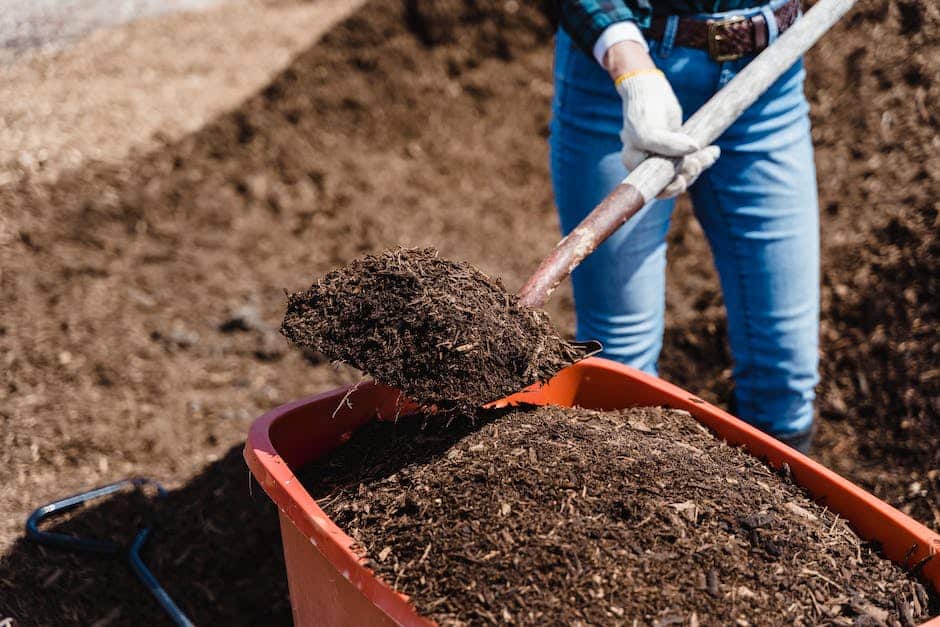Can Bread be Composted?
Composting is an excellent way to reduce waste and create nutrient-rich soil for your garden. It involves the breakdown of organic materials into a dark, crumbly substance called compost. Many people wonder if bread can be composted, and the answer is a resounding yes!
Bread is compostable and can break down quickly, adding valuable nutrition to the soil. However, it’s important to take special care when composting bread to avoid attracting pests and disrupting the balance of the compost pile.
How to Compost Bread
When composting bread, it is recommended to crumble it into small pieces before adding it to the compost pile. This helps it break down faster and prevents it from clumping together. Mixing bread with other organic materials like leaves, grass clippings, and vegetable scraps can also help maintain a balanced compost pile.
Stale or moldy bread is ideal for composting as it decomposes faster than fresh bread. If you have any stale or moldy bread, it can be a great addition to your compost pile.
Benefits of Composting Bread
Composting bread offers several benefits. Firstly, it reduces waste by diverting bread from the landfill. Bread is a common food item that often ends up in the trash, contributing to the growing problem of food waste. By composting bread, you can help reduce your environmental footprint.
In addition to waste reduction, composting bread adds valuable nutrients to the soil. As bread breaks down, it releases carbon, nitrogen, and other essential elements that plants need to thrive. This improves the overall fertility of the compost and ultimately benefits your garden.
Best Practices for Composting Bread
While bread can be composted, it’s important to follow a few best practices to ensure successful composting:
- Crumble bread into small pieces to aid in the decomposition process.
- Mix bread with other organic materials to maintain a balanced compost pile.
- Avoid adding large quantities of bread at once, as it can attract pests.
- Monitor the moisture levels in your compost pile. Bread can introduce moisture, so be mindful of the overall moisture content.
- Turn your compost pile regularly to promote proper airflow and decomposition.
By following these best practices, you can successfully compost bread and create nutrient-rich soil for your garden.
Conclusion
In conclusion, bread can be composted, and it offers several benefits to your compost pile and garden. By crumbing bread into small pieces and mixing it with other organic materials, you can ensure successful decomposition. Composting bread not only reduces waste but also adds valuable nutrients to the soil, improving the overall health of your garden. Remember to follow best practices to avoid attracting pests and maintain a balanced compost pile. With proper care, you can turn your bread scraps into nutrient-rich compost that will benefit your plants.
Related Websites:
FAQs:
Q: What is composting and why is it important?
Composting is a natural process that turns organic waste into nutrient-rich soil. It is important because it helps reduce landfill waste, enriches the soil, and promotes sustainable waste management.
Q: Can bread be composted?
Yes, bread can be composted due to its organic nature. However, it should be added in moderation and handled properly to prevent clumping or attracting pests.
Q: How should I compost bread effectively?
To compost bread effectively, tear or cut it into smaller pieces to speed up decomposition. Mix it with other carbon-rich materials like dry leaves or shredded paper to maintain a balanced compost. Avoid adding large quantities at once and monitor moisture levels to keep the compost damp but not overly wet.
Q: What are some potential issues when composting bread and how can I solve them?
Potential issues when composting bread include attracting pests, causing odor, and mold growth. To solve these problems, bury bread scraps deeper in the compost pile or cover them with other materials to deter pests. Add additional carbon-rich materials to balance moisture and reduce odor. Avoid composting moldy or spoiled bread to prevent spreading fungal spores.
Q: Are there alternative uses for bread instead of composting?
Yes, instead of composting, you can use excess or stale bread to make breadcrumbs, croutons, or bread pudding. This helps reduce food waste and encourages creative culinary uses for bread.






